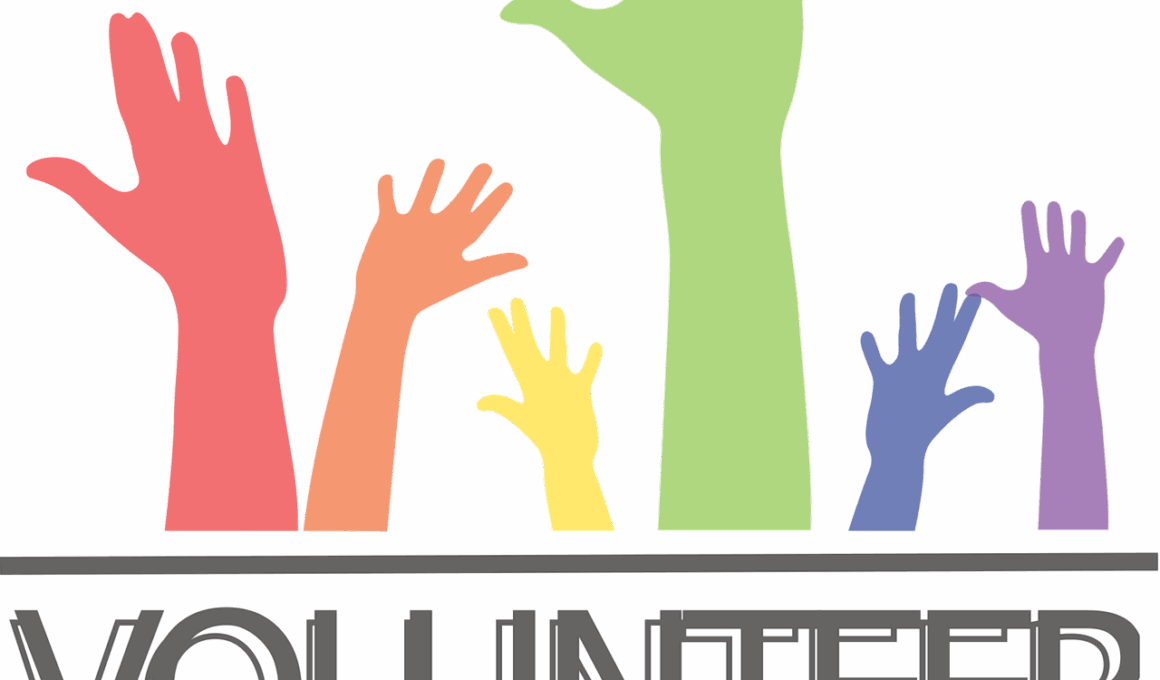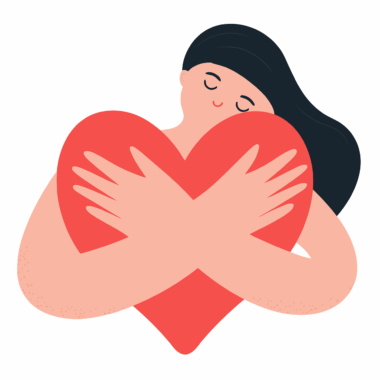Volunteer Opportunities to Foster Self-Esteem Post Eating Disorder Recovery
Volunteering plays a crucial role in rebuilding self-esteem after recovering from eating disorders. Engaging in community service allows individuals to shift focus from their struggles to helping others, creating a sense of accomplishment. This valuable experience supports personal growth and helps foster connections with other individuals facing similar challenges. By participating in volunteer activities, recovering individuals can not only enhance their self-worth but also gain valuable skills that can help in future endeavors. Volunteering often encourages a sense of belonging, which is essential for those who have struggled with feelings of isolation during their eating disorders. Opportunities for volunteering can range from assisting local food banks, mentoring at youth organizations, or participating in awareness campaigns that promote body positivity. These activities help build interpersonal skills and self-confidence. Reconnecting with one’s community after a period of withdrawal can be liberating and energizing. It’s important for those recovering to find opportunities that resonate with their personal passions and interests. Each interaction fosters a supportive environment and reinforces the understanding that self-worth is not determined by appearance but by acts of kindness and positivity.
One effective way to foster self-esteem is by joining organizations focused on body positivity and mental health. Becoming a volunteer with groups that advocate for eating disorder awareness can be immensely gratifying. These organizations often seek individuals willing to share their recovery stories and mentor others facing similar struggles. By engaging in initiatives designed to inform and educate, volunteers can empower others while reinforcing their own journey of recovery. This form of empowerment is essential as it emphasizes the values of resilience and personal strength. Additionally, volunteering to facilitate workshops or discussions around self-esteem and healthy body image can directly impact many lives. Volunteers can help create a safe space for open conversations, which might lead to healing for participants. Sharing experiences fosters community support and aids in breaking the stigma surrounding eating disorders. As volunteers connect with others, they build a network of supportive peers and mentors. This connection often provides a profound sense of belonging, essential during the recovery process. Volunteering also encourages continuous personal reflection, leading to a deeper understanding of one’s self-worth and enhancing overall mental well-being.
Building Confidence Through Empowerment
Engaging oneself in volunteer work that focuses on promoting healthy self-esteem often leads to significant personal transformation. For instance, volunteering in educational programs that teach about nutrition and body image can equip individuals with information that helps combat misinformation prevalent in society. By sharing knowledge, volunteers can empower others to make healthier choices and embrace a positive mindset. This experience not only enhances the well-being of others but also reinforces the volunteer’s self-worth and knowledge base. Moreover, such involvement can create a sense of purpose, essential for anyone recovering from an eating disorder. Finding meaning in helping others can lead to discovering new interests or passions. Participating in community-focused activities like group fitness classes designed for all body types can also foster a sense of inclusivity. Engaging with others in a supportive environment boosts confidence levels and reinforces positive body image. Activities might include organizing community events, supporting local health fairs, or participating in workshops focused on self-care practices. By contributing to these initiatives, volunteers can witness firsthand the impact of their participation, increasing motivation and belief in their capabilities.
An additional area where volunteers can make a difference is through artistic and creative expression. Many individuals recovering from eating disorders find solace and empowerment in expressing themselves through various art forms. Volunteering with organizations that offer art therapy or creative workshops can provide therapeutic benefits for both the volunteers and participants. Engaging in creative activities encourages self-exploration and promotes a deeper understanding of one’s feelings and experiences related to body image. Practicing self-expression through painting, writing, or dance releases suppressed emotions and fosters healing. Connecting with those who share similar experiences through art builds stronger bonds, fostering a sense of community. Furthermore, volunteers can help organize art exhibitions highlighting stories of recovery, allowing others to see the beauty in diversity and the importance of self-acceptance. Sharing personal journeys through creative mediums reinforces messages of resilience and hope. Such initiatives not only celebrate individual artistic talents but also encourage meaningful conversations around self-esteem and body acceptance. The art created during these workshops serves as a powerful testament to recovery and personal growth, inspiring many on their journeys.
Support Groups and Mentorship Programs
Another rewarding avenue for recovery-focused individuals involves establishing or volunteering in support groups. These groups provide safe spaces for sharing experiences and discussing challenges, ultimately fostering a collaborative recovery process. Volunteers can lead these groups, sharing insights from their own recovery journey while encouraging others to do the same. This mentorship helps cultivate a nurturing environment where participants support one another through shared struggles and successes. Importantly, support groups also promote accountability, reinforcing healthy habits and positive self-image. Regular meetings create opportunities for relationship building, essential for individuals who may feel isolated after recovery. Additionally, volunteers can coordinate activities such as group outings or wellness retreats, incorporating both fun and educational aspects aimed at boosting self-esteem. Encouraging participation in team-building exercises fosters trust and open communication. These collaborative activities help to reinforce the understanding that reaching out for help is a strength, not a weakness. Through shared experiences and mutual support, groups can create a tapestry of resilience that showcases the power of community in the healing journey.
Finally, volunteering to assist in events organized by mental health advocates can amplify the message of self-acceptance and recovery. Many organizations hold awareness campaigns, workshops, or events emphasizing the importance of understanding mental health. Volunteers can help with logistics, promote events through social media, or even design materials that communicate these valuable messages to a broader audience. By participating in these events, volunteers demonstrate commitment to the cause, thereby reinforcing their dedication to recovery and improvement. Coordinating these initiatives instills a sense of purpose, which is vital for sustaining self-esteem during and after recovery. Besides, volunteers can cultivate new relationships within the community, connecting with others who share similar values and goals surrounding health and wellness. Collaborating on such projects can imbue volunteers with a renewed sense of identity and hope for the future. Ultimately, through engagement in these advocacy efforts, recovering individuals gain insights about the impact of their work while inspiring others to embrace their own narratives of healing. Such involvement solidifies their place within the community while emphasizing the importance of fostering self-esteem collectively.
In conclusion, volunteering offers transformative opportunities for those recovering from eating disorders, enabling them to rebuild their self-esteem and embrace their journey. Engaging in community service provides a sense of belonging while allowing individuals to re-establish connections. Volunteering not only benefits those receiving help but also reinforces a volunteer’s personal growth and resilience. It creates an environment where empathy and understanding flourish, and individuals can realize their worth beyond appearance. Opportunities abound, from participating in body image advocacy to organizing community events focused on mental health. Each experience reinforces healthy interactions and promotes mutual support among individuals facing similar challenges. By utilizing their experiences to foster positive change, volunteers can ignite hope in others. Ultimately, the road to recovery is often paved by shared experiences and understanding demonstrated through acts of kindness. By supporting others in their healing journeys, volunteers solidify their roles as champions of self-esteem, instilling belief in their capabilities. In conclusion, fostering self-esteem post-eating disorder recovery through volunteering is a powerful tool that can create lasting change, both personally and within the community.





